“It’s like somebody took a chalkboard eraser and erased my life.”
Maggie Lord
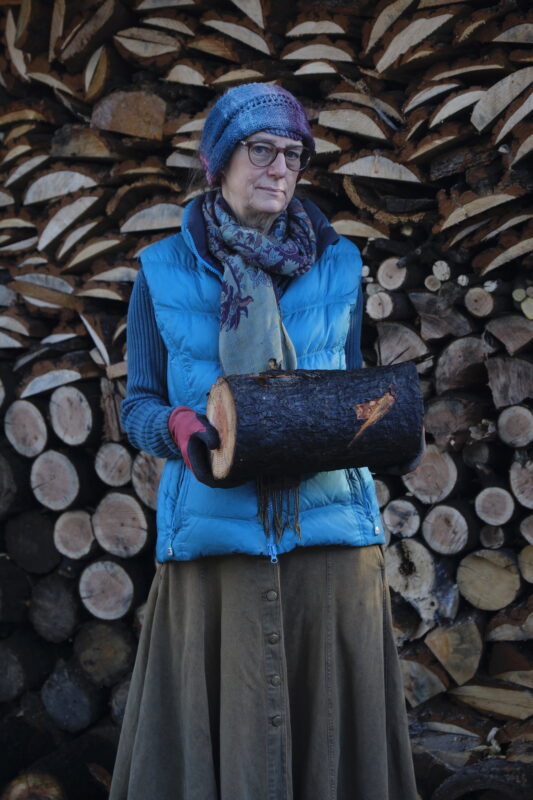
Maggie grew up on her parents’ small hobby farm in Abbotsford, British Columiba. She left home when she was seventeen and moved around Canada before settling in the Lytton, BC, area with her partner at the time. They developed an orchard, two houses and two cabins on their 100 acres. On the property, they raised four kids, with whom Maggie still spends lots of time, along with her grandchild. She lived there for thirty-eight years.
She describes the property as “a rough place to live but very beautiful and very unique.” Both of those qualities arise from it being remote. Their driveway was over 2 miles long and they lived entirely on solar power and their own water systems. Maggie says she has always believed in a non-consumer and non-polluting lifestyle and describes herself as an “old hippie.” For fun, she enjoys making music; she played piano and is in a choir.
Maggie says Lytton has “a lot of bad history,” as the village was home to a residential school. The National Centre for Truth and Reconciliation states the school was the site of ongoing sanitation, fire safety, overcrowding problems, as well as physical abuse and sexual abuse. Maggie says she was inspired by the strength and resilience of the Indigenous communities in and around Lytton as they healed from the past.
Maggie worked part-time jobs as a cleaner in a hospital and as a pharmacy technician in Lytton. After retiring, she has spent much of her time “puttering around her place” and maintaining their homemade systems, which she says was almost a full time job.
All of the cabins and houses on that property were owned or occupied by members of Maggie’s family. Her ex-partner and son lived in the houses; Maggie and her daughter, who lived in an apartment just outside of Lytton, owned the cabins. However, by 2021, Maggie had moved to an old house in the centre of Lillooet, BC to renovate it.
I was just at home. It was a regular day here when the fire happened. That was the surprise of the day. I got a phone call from my daughter. I think it was around 5 o’clock in the afternoon. I could tell how upset she was. She said, “Lytton’s on fire. Can I come up there?” I said yes.
She had been in town getting an ice cream cone with her daughter. It was extremely hot. They could see smoke coming down. She said the flames were actually going down the sidewalk as fast as they were. They ran into their apartment. She grabbed her computer, her passport, and her daughter’s tablet. That was about it. Then they went and got gas. She said they had ambers falling on them at the gas station. They were one of the last to be able to gas up.
After she phoned me, I said, “Okay, I’m going to call dad.” That’s my ex who’s living on the property. I phoned him to let him know because our land is about 2 miles northeast of town. He could see the smoke. He was running up the hill to tell our son. Then my daughter phoned him, so he hung up with me. While he was talking to her, the cell tower went down and we lost cell service with my ex and my son who were on our property.
I think they were trying to set up sprinklers. All of a sudden, they realized they had to run down to the river. They ran away from a wall of flames down to the train tracks and hid in a tunnel that was right below our place and waited it out. The cats were just dying as they came back.
They got there just in time to save my ex’s house. If they had been much longer, he would have lost his house, too. That’s the only building that we were able to save on the property. My daughter got up here after 45 minutes or so, very stressed and realizing that she’d lost her apartment with everything in it.
There was no cell service for a day or two. We didn’t know for a couple of days about my ex and my son because nobody was allowed in there. There was this big evacuation order and you were supposed to leave if you were in that area, but nobody came in and told them. It was all blocked off. It was very stressful. I had to put it out of my mind until we could hear what had happened.
They got harassed by the cops for being behind the evacuation area. All he wanted to do was grab this cell signal that they could get so they could phone his girlfriend and say they were okay. My son was really stressed. He was probably being lippy. He ended up getting put in a wrist hold and thrown in a cop car and threatened with arrest. I realize the RCMP were stressed. They’re trying to keep everybody out of there. I would just like to see a little more compassion from the powers that be.
During the fire, I was busy dealing with the people that were coming and going. Over about three months, I housed my daughter and granddaughter, then my son and his girlfriend, and then three other people from another fire after my kids had gone. Because I’m right central in town, I had lots of people dropping in and just sitting in my yard and talking. I was dealing with other people’s trauma, making food for people that needed it, and having a place for them to stay.
I had friends who sat on one side of the river and watched their house burn up on the other side of the river. All these people I know are just blank-faced in shock that had just watched their everything burn up.
I went to the property about ten days after the fire. I couldn’t legally get in sooner as all of the roads were barricaded. That was pretty devastating. There were areas where the ground was burned right down to the rock. It was like a bomb had gone off in some areas. There were no birds or anything, it was just burnt-out nothingness. Even the water lines are burnt in a lot of places.
We had a big mechanic and wood shop and all the tools that went along with that, and it all burned. We had a wrecking yard that had about thirty cars in it. Every window broke. Every car is burned down to metal. We had an old fire truck in there and it had melted. There are rivulets of melted aluminum under every vehicle, cool sculptural bits of it. Aluminum melts at about 660 degrees Fahrenheit, and it was hot enough for all of that to melt.
We bought the land in 1983. It was total bare land with nothing on it. Everything we did there, we did ourselves. It’s like somebody took a chalkboard eraser and erased my life. Everything I worked for there is gone. Most people can look back at the things they did in their life and say, “Look, I did this, I did that.” But there’s nothing there to say that about. It is a very Zen-like experience to think about it like that.
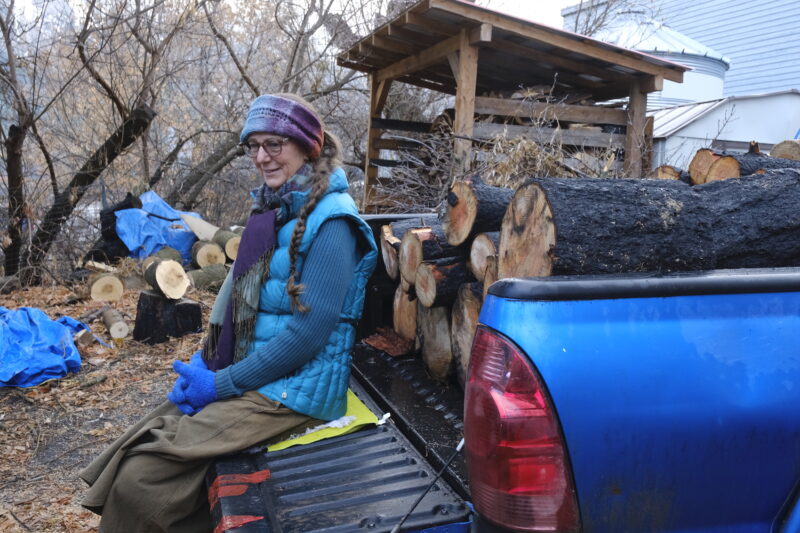
Before the fire, Maggie Lord’s large extended family resided in four homes on her 100-acre property in Lytton, Canada. (CDP Photo/Jen Osbourne)
When you get to be as old as me, everybody’s had bad stuff happen in their life. But this is the only time that I think I felt real shock and PTSD. That was pretty traumatic, to drive in there through the devastation, the rubble that was left. I can come to terms with the fact that everything’s totally changed logically. You can deal with that in your head, but it takes your body a while to catch up.
I lost quite a bit of weight, which I can’t afford because I’m pretty thin. I’d be hungry, so I’d make myself this really enticing supper and be able to eat two bites, and then my throat would close up. I couldn’t eat anymore. I’d be walking around doing something or other, feeling okay. All of a sudden, I’d just fall down. My legs would give out. I would go to sleep, basically. I’m assuming PTSD sufferers have these kinds of things where your body shuts down every now and then. It’s better now, but that was a new experience for me. It was so busy in my house that I didn’t really have time to sit and stress about it. I was just busy looking after what needed to be done.
We live in a fire-prone area, so we always had a plan for what to do if there was a fire and taught the kids, “You run down to the river” and all of that. People that live out in these areas, we’re not dummies. But as much as I’m one hundred per cent very thankful for those firefighters, a lot of them are twenty-year-olds. They’re from the city. They don’t know the countryside or all the resources that are there. I think we should stop trying to evacuate everybody from the bush areas and train and supply them to help fight fires. Of course, there will be people that get hurt, but who is going to fight harder to save your house, you or some firefighter that doesn’t know you from Adam?
I would also like to see our government stop supporting and subsidizing the gas and oil industry. Let them stand on their own feet and let them slowly die. Put their subsidy money into alternate energy and electric vehicles.
We can blame all those guys, but they’re only there because we’re standing here buying all their stuff. I’d love to see classes in school helping kids to think about growing up to be something other than a consumer and think about not buying new things every week. This would be a worldwide change.
We’re the ones buying all these products and we’re the ones demanding all this stuff. I don’t know how to do it, but I would like to see people think more about having a simpler lifestyle and not being strictly consumers. Teach our kids that we’re the ones pushing all of this. It’s not all their fault. If we stopped buying stuff, they would stop making it. I don’t know what it will take for people to realize that we don’t live on an earth that can support all of us living our North American lifestyle. It just can’t do it.
I was sitting out with my son’s girlfriend at the site where their house used to be. She had a little garden that was still green. We were in the middle of all this blackness everywhere, seeing the green, and realizing that yes, we’ve lost all this stuff. But as far as the earth goes, it’s probably had thousands of fires go through here over its history and this is just another one to come back from. Next year and maybe even this year, there’ll be a lot of baby trees, tiny little seedlings coming up. The land will eventually be okay. It’s just us that will be suffering.
This testimony was originally published in The Tyee, on May 17, 2023.
Related Stories
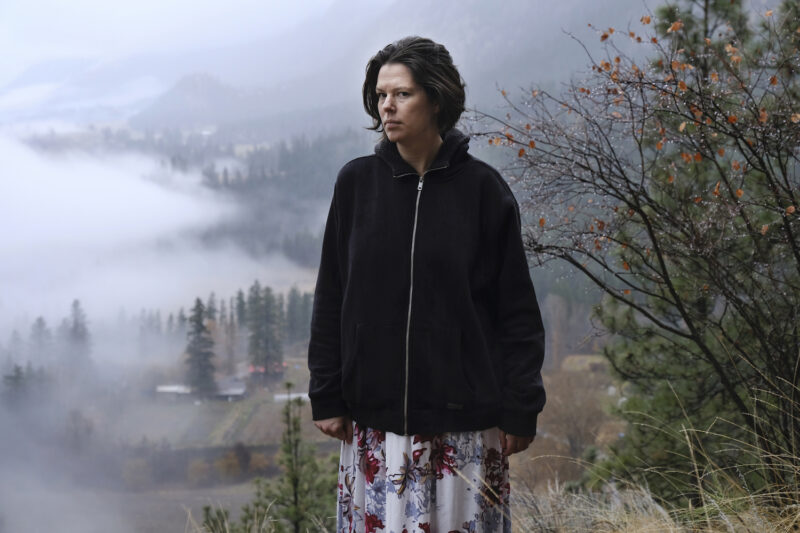
Micha Kingston, Lytton, Canada
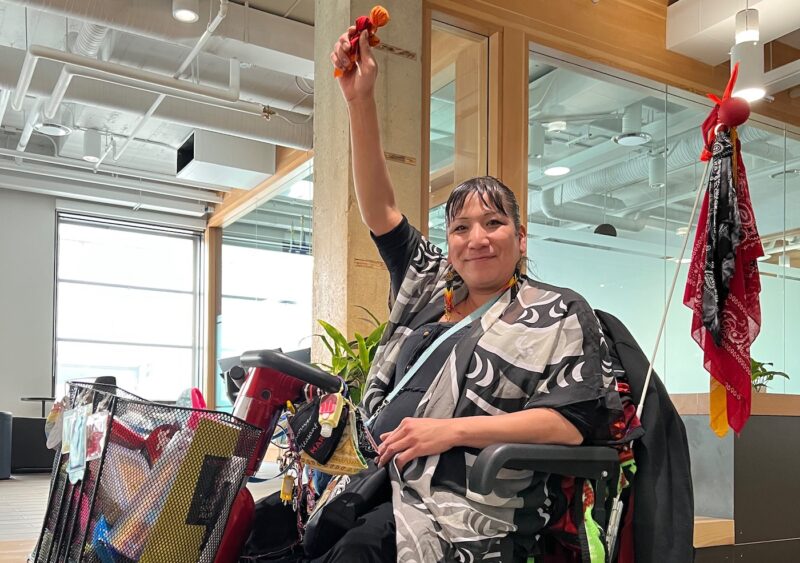
Suzanne Kilroy/Huculak, East Vancouver, Canada
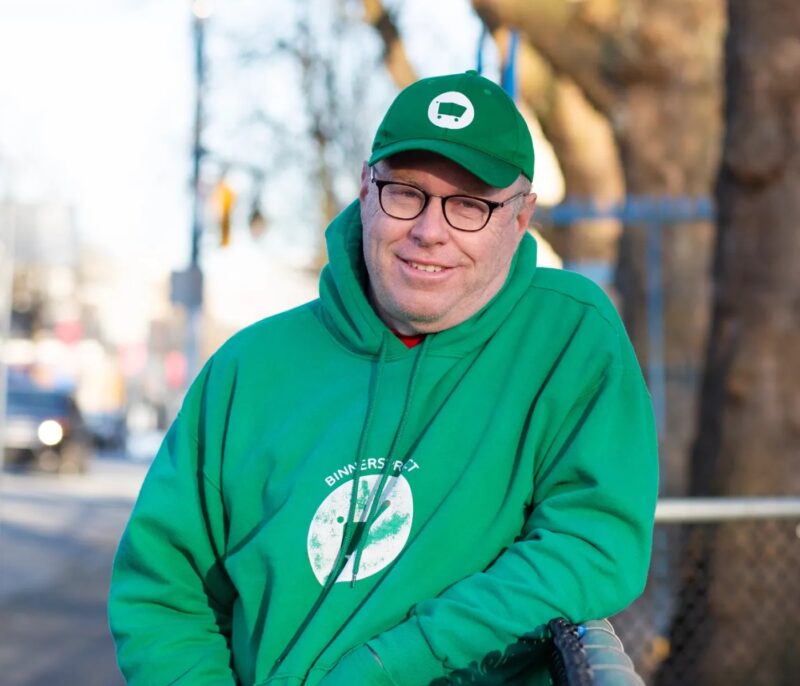
Mike McNeely, East Vancouver, Canada